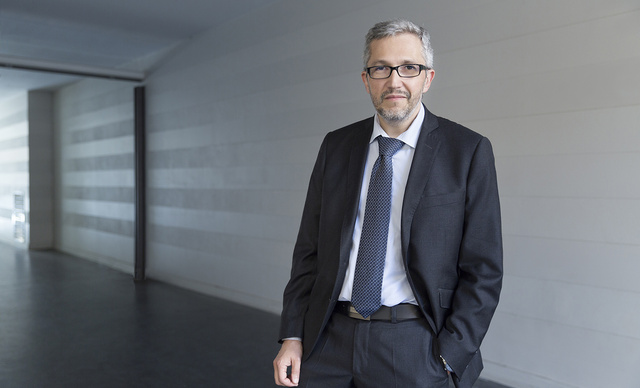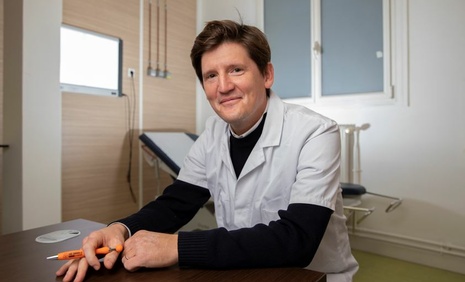
Pr Roman ROUZIER, directeur délégué à l’enseignement de l’Ensemble Hospitalier, professeur de chirurgie à l’université Versailles Saint-Quentin. Durée des droits : 5 ans (24 juin 2020)
Interview with Professor Roman Rouzier, medical director of the senology department at Institut Curie
Screening: for or against?
Since 2014, screening has been a subject of great debate and recurring controversy, since it potentially leads to over-diagnosis and over-treatment. According to a Canadian study (1) conducted on 90,000 women over 25 years, mammograms do not reduce mortality. However, a meta-analysis of 11 randomized trials performed throughout the world showed a 20% reduction in mortality due to early screening.
Screening helps detect a tumor of less than 2 cm that has not reached the lymph node. Using higher quality mammography, with results read twice, allows for treatment without chemotherapy and, in 70% of cases, saves the breast. This benefit is confirmed by a study from Institut Curie: since 1980, the mortality rate has dropped from 30-35% to 7-10%, a result that is due to screening and to therapeutic progress in equal measure.
As a surgeon, I am particularly sensitive to the risk of over-diagnosis and over-treatment. This risk exists with ductal cancer (in situ), and the scientific community is aware of this. With screening programs, we estimate that 10% of cancers are over-diagnosed, which can lead to over-treatment of tumors that will not necessarily develop. But we are not able to easily identify the cases that will not develop, so we have to treat all of these patients. For every life saved, three cancers are over-treated. I believe that this is a fair compromise, since these treatments of small tumors are minimally invasive, so we shouldn’t question the screening programs, which every developed country has.
However, we need to scientifically assess a potential therapeutic de-escalation for breast cancer. A very specific study over the course of 10 to 15 years is required, with enough patients and frequent follow-up to limit the risk of letting an in situ cancer develop into an infiltrating cancer. A European study plans to include 1,842 volunteer patients suffering from low-grade ductal cancer, confirmed by biopsy following mammogram screening. After randomization, patients will receive either a conventional treatment (surgery, radiotherapy) or regular follow-up. Monitoring will take place for 13 years.
Furthermore, screening needs to be developed by improving the performance of imaging techniques and by continuing research into other types of screening, in particular liquid biopsies and detection of circulating tumor DNA.
What is the role of genome testing in the personalized care of patients?
Predictive tests are not available to help physicians make therapeutic decisions in some intermediate cases of breast cancer. They allow for therapeutic de-escalation by avoiding chemotherapy treatments, which are unnecessary for some patients. At Institut Curie, in 2015 we launched a prospective multi-center study of 200 patients to assess the value of the PAM50-ProsignaTM test to decide whether women who have undergone surgery for early-stage breast cancer should be treated with chemotherapy. This test provides additional information in almost 30% of cases.
The use of these tests is now included in many European and international recommendations. The costs of the tests are even reimbursed in some countries. In France, however, these tests were neither recommended nor reimbursed by the health authorities until now, and were accessible only in some clinical trials.
I am one of those who advocated to obtain reimbursement of these tests, and we have just obtained it from the public authorities. In 2017, we are launching a vast comparative multi-center study, Optigen, of these three tests on 600 patients, which I will be heading with the support of Unicancer.
In the future, the information provided by the molecular characterization of tumors will only grow and become more relevant. It will help us to better predict the risk of recurrence, select the most effective therapies and also better understand the origins of cancer.
In order for this personalized approach to be effective, it is vital to control and facilitate the processing of tumor samples, while ensuring access for all patients to innovation. A very significant effort is underway on a national scale to organize this process and to group tests on some dozen efficient platforms. At Institut Curie, we are currently organizing ourselves to meet the requirements of the Cancer Plan, which involves optimizing our processes and our platform and which could, in the long term, perform the analysis of around 10,000 tumors per year.

